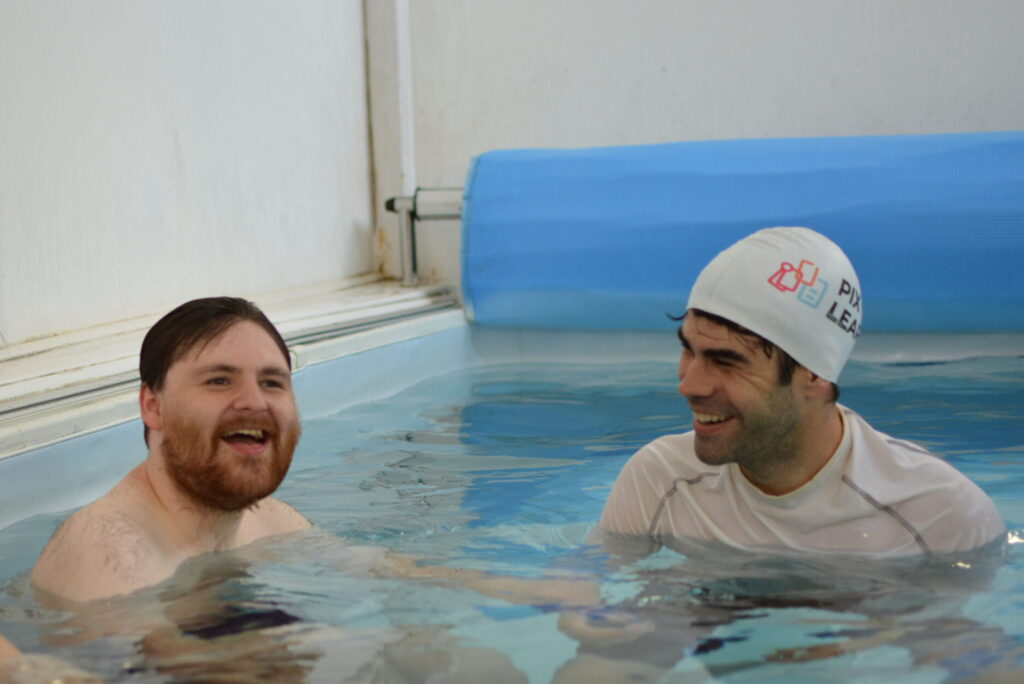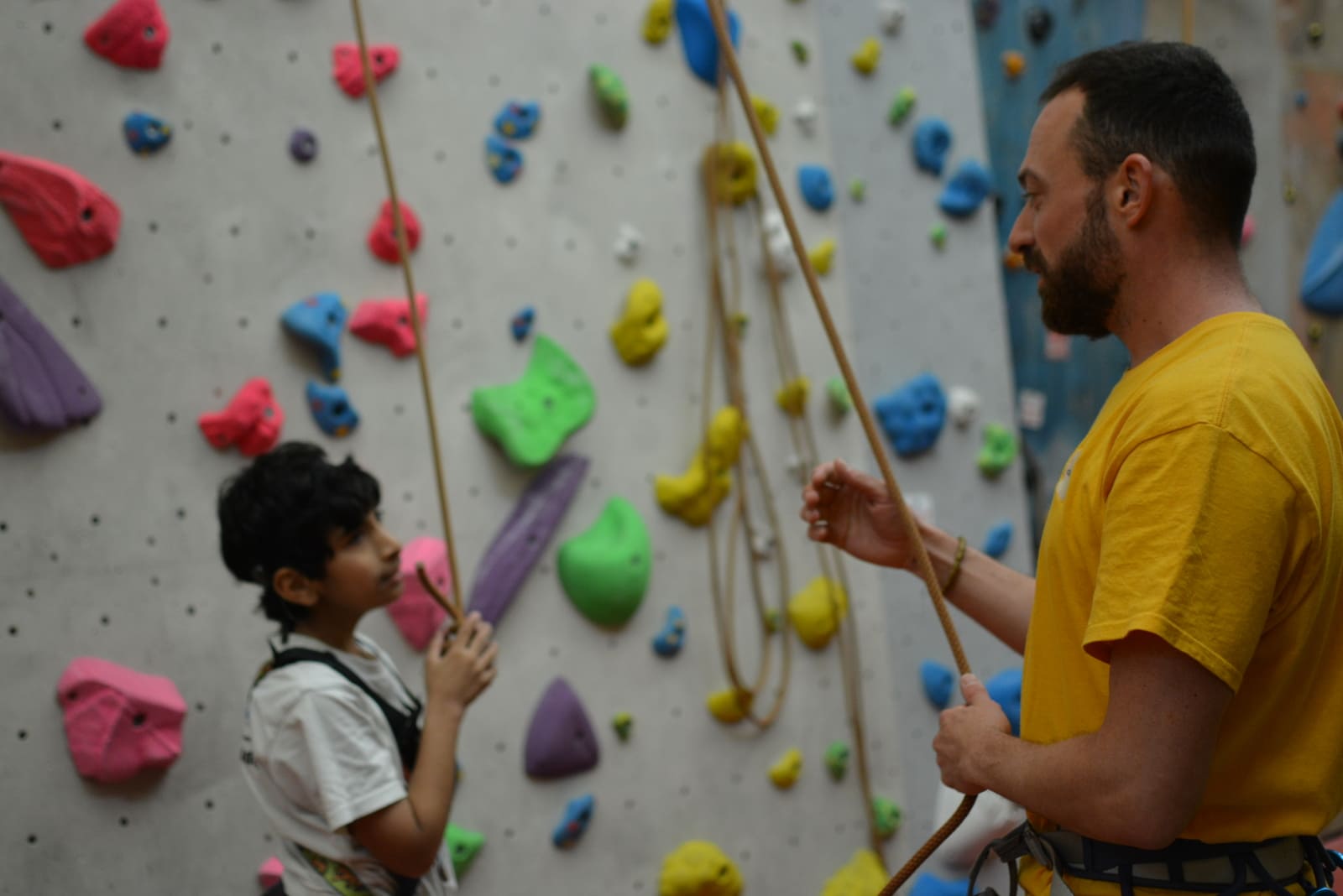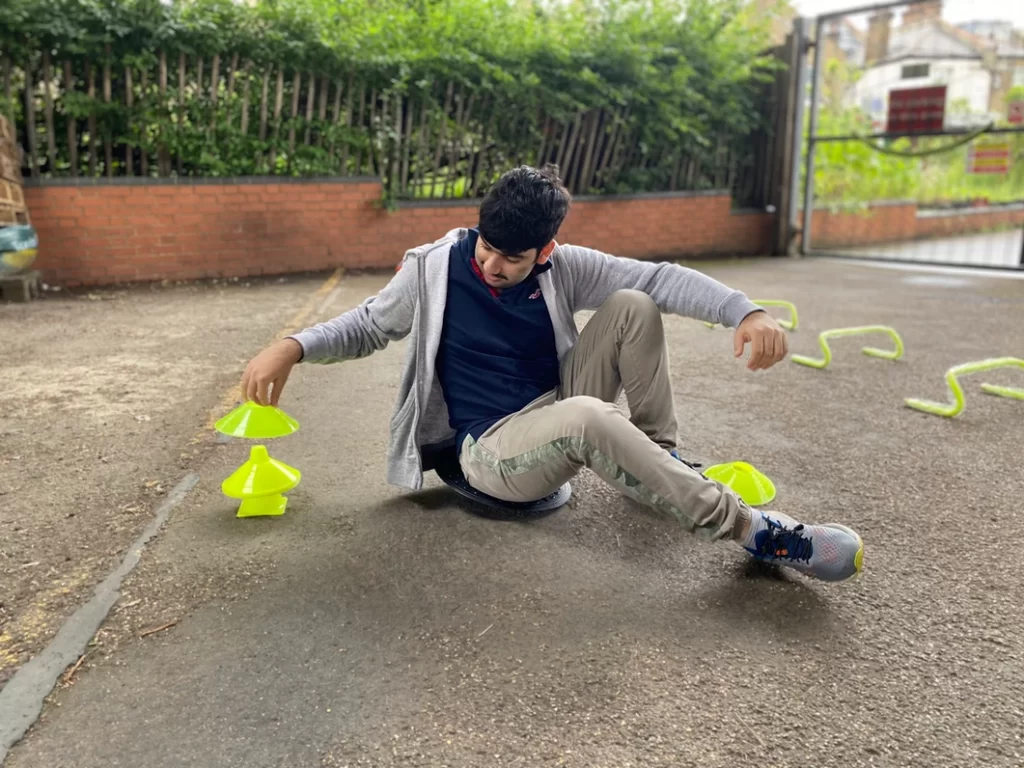At ClubSENsational, movement and physical education are at the heart of everything we do. With our strong background in physical education, we recognise the incredible benefits that physical activity brings to every individual. It goes beyond merely staying active; it plays a vital role in enhancing physical, mental, and emotional health. For individuals with Autism Spectrum Disorder (ASD), physical activity can significantly boost areas such as executive function, motor skills, and sensory integration. This is why it is a fundamental part of our services.
Individuals with ASD may face various challenges, but structured physical activities tailored to their individual needs can make a tremendous difference. Our programmes focus on improving motor skills, coordination, and social connections while incorporating elements of sensory play and motor planning. This not only enhances their physical health but also helps them feel more confident, reducing anxiety and fostering a sense of belonging.
At ClubSENsational, we strive to develop essential skills like communication, independence, and emotional well-being. Our individualised programmes ensure that each child can work towards their personal goals while enjoying the process. We understand the power of movement and adapt it to fit every child’s unique needs, empowering them to achieve a more independent and fulfilling life.
Section 1: The Connection Between Physical Activity and Learning in Individuals with Autism Spectrum Disorder (ASD)
Before diving into our support strategies, it is essential to understand the challenges faced by individuals with ASD, particularly in areas like planning, communication, and motor skill development. Recognising these difficulties helps us appreciate the significant impact that well-designed, personalised programmes can have.
For those with ASD, executive function—which includes planning, focus, and organisation—can feel overwhelming. Structured physical activities, such as obstacle courses, encourage individuals to plan, focus, and organise their movements effectively. Furthermore, ASD can impact communication, social skills, and language development, often due to difficulties with working memory. This affects not only their learning but their daily lives as well.
Individuals with ASD may also participate less in physical activities, leading to delays in motor skill development and increased risks of health issues like obesity (Toscano et al., 2017). Targeted exercises can significantly enhance their abilities, leading to improved confidence and social participation (Lang et al., 2010). By incorporating sensory play and motor planning, we create safe spaces that encourage social engagement and reduce anxiety.

Section 2: Key Motor Skills Impacted by Physical Activity
Physical activity is more than just exercise; it plays a crucial role in promoting physical health, brain development, and emotional well-being. At ClubSENsational, we utilise a variety of engaging activities tailored to support children with ASD.
- Aerobic exercises, such as swimming and jogging, enhance overall fitness and heart health. We provide opportunities for children to engage in fun activities that keep them active and healthy.
- Strength training through circuits and climbing helps to build muscle and confidence, encouraging resilience both physically and mentally.
- Flexibility exercises, like stretching and yoga, help children maintain a nimble body, contributing to their overall well-being.
- Balance and coordination activities using therapy balls and balance beams enhance stability and motor control while making the sessions enjoyable.
These exercises are vital for supporting children with ASD in their physical development and daily life.
We also emphasise the importance of proprioception—the sense of body awareness—by incorporating activities like crawling and bear crawls to help children understand their movements. Interoception, which relates to recognising internal cues such as hunger and stress, is equally important. Activities like deep breathing and mindfulness in our sessions (even during our swimming or climbing sessions) foster emotional regulation and self-care.
The benefits of physical activity extend beyond the body:
- Improved cognitive function enhances focus, memory, and decision-making.
- Motor skill development is essential for everyday tasks, improving balance, coordination, and agility.
- Emotional well-being is supported through the release of endorphins, which help to reduce anxiety and stress—a significant advantage for children with ASD.
Group activities also offer fantastic opportunities for social interaction, helping children develop cooperation skills and make new friends in a supportive environment.
Section 3: Daily Functional Activities to Improve Motor Skills
At ClubSENsational, we believe that incorporating functional activities into an individual’s daily routine is essential for enhancing their motor skills. These activities are practical movements that support individuals in developing both fine and gross motor skills naturally.
Key elements of our approach include:
- Allowing individuals time to process new movements and information.
- Encouraging independent task performance at their own pace.
- Individualising learning to cater to everyone’s unique processing style.
By fostering independence and confidence, we ensure that children absorb their learning effectively.
Here are some daily functional activities we use to help improve various motor skills:
- Agility: Climbing stairs, navigating obstacles, or playing tag encourages quick movements.
- Balance: Simple tasks such as standing on one leg while dressing or walking on uneven surfaces improve stability.
- Coordination: Activities like sweeping or playing musical instruments enhance hand-eye coordination.
- Proprioception: Tasks like carrying groceries or kneading dough boost body awareness.
- Interoception: Practising mindfulness during meals and deep breathing exercises enhance emotional regulation.

Conclusion
In summary, physical activity plays a vital role for individuals with learning difficulties, particularly those with Autism Spectrum Disorder (ASD). At ClubSENsational, we understand that incorporating a variety of services centred around physical activity and functional activities into their daily routines can significantly enhance motor skills, emotional well-being, and social connections. Our aim is to create a positive and enjoyable environment where individuals can learn while having fun.
A key aspect of our approach is the individual-centred method, which allows us to tailor programmes to meet the unique needs of each individual. This ensures that every activity resonates with their personal strengths and interests, facilitating more effective learning and development. Adapting the sessions to their needs is crucial, as it provides a structured environment that helps individuals feel safe and secure. We also incorporate visual aids and communication tools to support understanding and engagement during each session.
Our personalised programmes focus on these strengths, allowing individuals to grow at their own pace and reach their goals. We foster a supportive atmosphere where individuals can build confidence and independence, fully engaging in their growth journey. The advantages of movement go beyond just physical health; they also promote cognitive development and emotional resilience.
Therefore, our mission is to create an environment in which where each person can grow at their own pace and reach their full potential.

